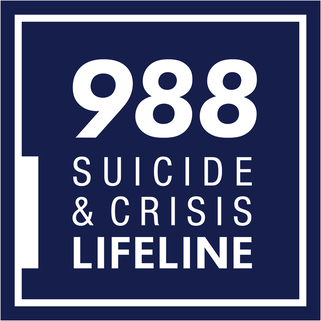|
By ABCS RCM Depression is a serious mood disorder that can have dangerous consequences. Equally as threatening are eating disorders, which if left untreated; are also dangerous. However, there is actually a connection between these two health conditions. Some people do not realize that major depression and eating disorders can often occur together. Mental health professionals are aware of the correlation between depression and eating disorders like anorexia nervosa and binge-eating disorder (BED).
Understanding These Conditions: People must understand that depression also inflects many people with more well-known eating disorders like anorexia. In medical terminology this is known as comorbidity. Individuals with anorexia usually fail to consume enough food to maintain a healthy weight. Individuals with BED, a condition that affects 2.8 million people, may also experience depressive episodes. Yet, many people tend to think of eating disorders and depression as separate conditions. Eating disorders are more common among females. Males account for only 5 to 15 percent of anorexia or bulimia diagnoses. For BED cases, this number climbs to 35 percent of males reported having this condition. Whether these differences are caused by societal pressures or biological factors is still unclear. There is a profound influence of social norms and mass media on a female’s perception of themselves. However, this is a topic for another article. The reality is that this is a disease that has a larger impact women and girls. In many cases of anorexia nervosa, a psychological condition to rid the body of food, the disorder is usually associated with a negative self-image. This is also one of the primary traits for people with depression (major depressive disorder). Negative self-image can be the cause or effect of depression. The two conditions are correlated to the same mental health issues. Connections Between Depression & Anorexia: There are other behavior examples that are displayed by individuals struggling with these conditions. People with severe depression may have trouble attending social events and other festivities. Similarly, people with eating disorders may find the abundance of food at social activities especially stressful. In either case, people who are grappling with depression or an eating disorder will display similar behavior patterns. Researchers have discovered that there is a correlation between low serotonin levels in the brain and disordered eating patterns. As a reminder, serotonin is a chemical in the brain which controls things like a person’s mood and appetite. When mental health professionals correctly understand that the root cause of eating disorders is a neurochemical issue in the brain, it provides for additional treatment options. Of course, the occurrence of depression and eating disorders in people is more complex then simply chemicals in their brains. There are a variety of different issues that can create dangerous health complications. A person’s behavior and mental health is part of a larger social context. An individual’s mental health is also influenced by factors such as school, work and their home environment. Experiencing traumatic incidents and social pressures have an additional impact on the development of either depression and/or dysfunctional eating patterns. Depression-based feelings can rise from unrealistic physical expectations of the human body. In this case, people with anorexia try to control the body by excessive exercise and unhealthy weight management. Many researchers argue that this compulsion usually arises from a person’s internal perception that she or he is not meeting society’s beauty standards. In turn, this lack of control and despair is usually cited as a primary cause of clinical depression. However, many binge-eaters turn to food in order to deal with psychological stress rather than facing the circumstances. The Need For Professional Treatment: Thankfully, depression and eating disorders can be treated at the same time. However, the recovery from one mental health disorder does not guarantee a recovery from the other disorder. Both illnesses must be treated as separate conditions. This is why is extremely important that people seek professional help from experienced mental health professionals. Research has documented that untreated depression is deadly. According to the U.S. Department of Health and Human Services the majority of people who have depression do not die by suicide. However, having major depression does increase an individual's suicide risk compared to people without depression. The risk of death by suicide is, in part, likely related to the severity of the depression. Similar statistics exist for individuals with untreated anorexia. Research shows that eating disorders have the highest mortality rate of any mental illness. In fact, people with anorexia are 50 times more likely than the general population to die as a result of suicide. Our Services: For questions about treatment options for depression or eating disorders, contact Providers For Healthy Living. They have been treating patients with depression and eating disorders since 2011. As an experienced mental health provider, they strive to have every patient feel more hopeful after interacting with a member of their staff. Their practice was built on the values of quality, hope and personal responsibility.
0 Comments
Leave a Reply. |
|
Please DO NOT use this email address for medication refill requests or for emergency situations.
Click here for refill requests instead of using email: Medication Refill Request Form If you have a medical emergency, email is never the appropriate way to communicate your needs, and you should instead call 911 or go to the nearest ER. If you are having suicidal thoughts and need to speak to someone immediately, you can contact Suicide Prevention Hotline at the number (and link) below. [email protected]
Communications via email are not secure. Although it is unlikely, there is a possibility that the information you include in an email can be intercepted and read by other parties besides the person to whom it is addressed. |
|
2024 Providers for Healthy Living | All Rights Reserved
|

